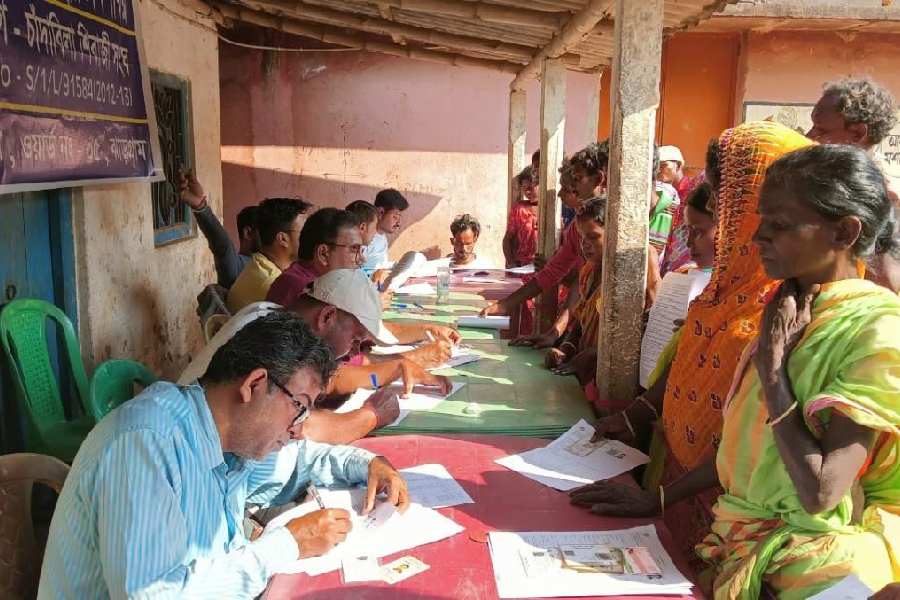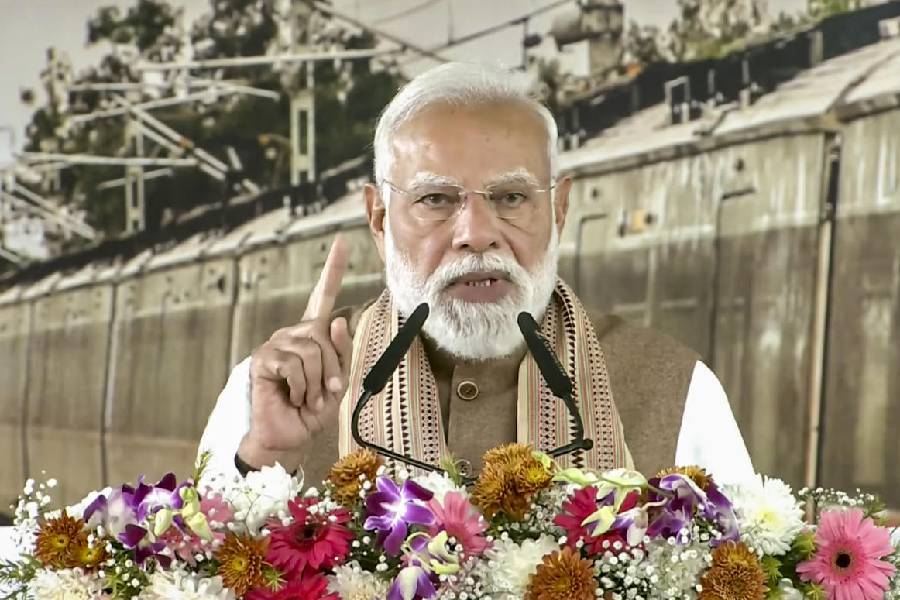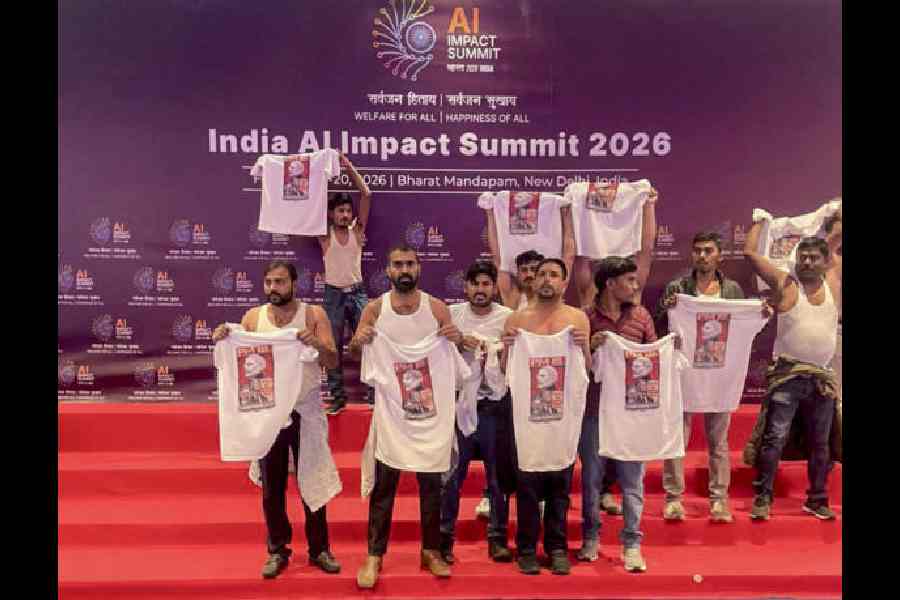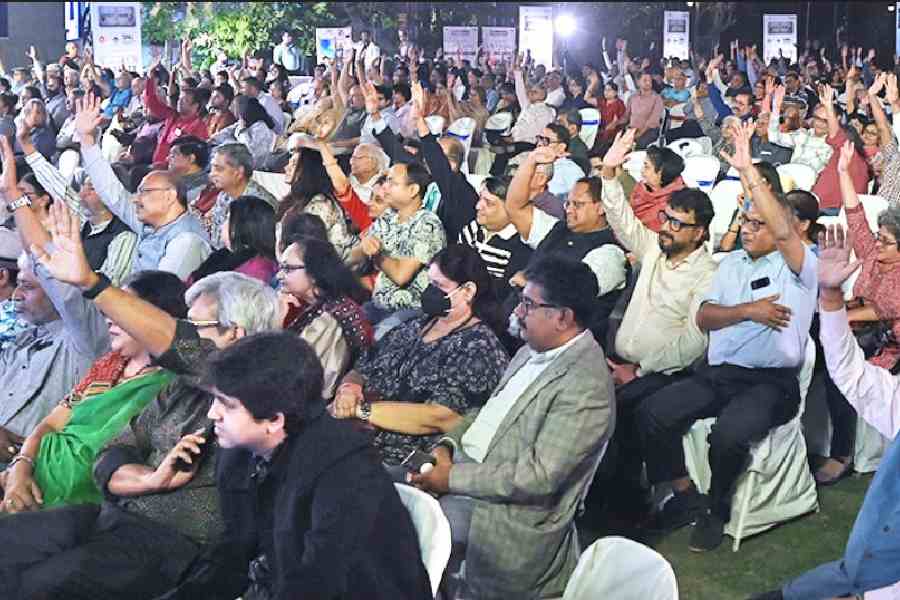Ashwini Mallik, 46, of Chandabila Sabar Para in Jhargram faced a tricky problem filling out his SIR enumeration form.
His documents cite his father’s name as Sambhu Mallik. But on the 2002 electoral rolls — crucial to not just Ashwini’s enrolment as a voter but his status as citizen — the name appears as Sambhu Sabar.
A local social worker said people from the Sabar community — an indigenous tribal group living mainly in the Jungle Mahal districts of Bengal and in Jharkhand — often face issues with their surnames during official processes.
This is because of a trend among them to change their surnames without legal documentation, he said.
The local booth-level officer and members of the Chandabila Shibaji Sangha, a club, advised Ashwini to submit a court affidavit saying Sambhu Mallik and Sambhu Sabar are the same person. The legal formalities cost him ₹200.
If names can be a problem, so can addresses among the poor and largely illiterate
Sabars.
“Many Sabars keep moving from one tola (hamlet) to another with their families for livelihood. They live in temporary, undocumented settlements. This creates an issue of address,” said Koushik Majumdar, member of the local club.
Koushik said the club had opened a help desk, eschewing any party banner, to assist the Sabars fill out their enumeration forms.
“Workers from different parties, including Trinamool and BJP, are our members but we decided on an apolitical camp, held on weekdays,” Majumdar said. “We have helped around 400 Sabar community members from our area.”
Names and addresses can pose a different kind of problem, too, especially for Sabar women from Jharkhand married to men from Bengal.
Most marriages within tribal communities are never registered, which often leaves the women without any document to confirm their change of address from Jharkhand to Bengal, or explain their (post-marriage) changeof surname.
“Our district has thousands of married women from Jharkhand who have been living here for years but have no legal proof of their marriage. They got married in the traditional tribal way,” Sunil Soren, president of the Birbhum Adivasi Gaonta, said.
Tumpa Mallik, 36, a native of Purba Singhbhum in Jharkhand who married Mahadev Mallik of Chandabila Sabar Para 18 years ago, faced a different challenge.
When the primary school dropout asked her parents in Jharkhand for the name of their polling station so she could check the 2003 list – the year the neighbouring state underwent its previous SIR – she was in for a shock.
Tumpa’s father knew that his Assembly constituency was Baharagora but did not remember the name of the polling station from 2003, without which that year’s list cannot be searched.
Eventually, Tumpa contacted Majumdar’s club. They asked her for phone numbers of people from her old locality in Jharkhand. The club members had to make several calls and search the Internet for over three hours before they located her parents’ names on the 2003 Jharkhand list.
“Such searches are not easy for Sabars, most of whom are illiterate or primary-school dropouts,”Majumdar said.
Migration has complicated the SIR process for many Sabar and other tribal families.Huge numbers of them migrate for 20-30 days from districts such as Purulia, Bankura and Jhargram to placeslike East Burdwan and Hooghly as farm workers during the paddy harvesting season.
With entire families often migrating, the BLOs find no one at home when they arrive with the enumeration forms, said Prasanta Rakshit, director of the Paschim Banga Kheria Sabar Kalyan Samity.
“Although our organisation and the local administration have been trying to help the Sabar community with the SIR process, many of them have already moved to other districts with their families to harvest paddy,”Rakshit said.
“Those that have stayed back to complete the SIR process have had to sacrifice a substantial source of annual income.”
Until her death in 2016, acclaimed author Mahasweta Devi had been the working president of Rakshit’s organisation, which has been helping tribal people since 1968.
According to the 2011 census, south and north Bengal together have around 53 lakh people from tribal communities such as Santal, Oraon, Bhumij, Munda and Kora.
In south Bengal, they are concentrated mainly in the four Jungle Mahal districts apart from East Burdwan and Birbhum. In the north, communities such as Ravas, Kols, Bhils, Mundas and Totos have sizeable populations in Alipurduar and Jalpaiguri, where many of them work in thetea gardens.
In the tea belt, the SIR has drawn mixed reactions. While most of the workers and their families have welcomed the initiative, some are worried that they do not possess land records.
The SIR does not accept ration cards or voter cards, and has reduced Aadhaar to a proof of mere identity and not citizenship. With documents such as passports and education certificates hardly accessible to the poor tribal families, land records often become crucial to their passing the SIR test.
“For generations, we have been living on the tea gardens’ leasehold land, and most of us have no land records,” said Omdas Lohara, a sardar (supervisor) at the Kalchini tea estate in Alipurduar.
“The garden owners allow us to live on such leasehold land, to which we have no right. Our situation is different from that of people who live in the villages and can furnish land documents toprove residency.”
From Jhargram, Purulia and Bankura in south Bengal to the tea gardens of the north, however, tribal people can be seen queuing outside photographers’ studios so they can attach their pictures to the enumeration forms.
“They are visiting studios for passport-size photos, and a large number of them have been showing great enthusiasm for the process,”Rakshit said.
“They understand that they need to complete the process, else they might face problems as citizens.”
Munni Oraon, a worker at the Bamandanga-Tondu tea estate in Jalpaiguri’s Nagrakata block, said she had like many others lost her documents during the flash flood of October 5, but the administration had issued new ones. She has filled out her form.
“We believe the SIR will help ascertain who the bona fide residents of the tea gardens are,” she said.
“Small settlements have come up in some fringe areas of the tea estate. Those living there are not connected to the garden. This trend must stop.”
Her tea garden supervisor said many people from Bangladesh were living in these areas, posing as local people.
The tribal arms of both Trinamool and the BJP have deployed their workers to help the tribal families.
“We are ensuring that no tribal resident of Bengal who has been living here for years has their name deleted,” said Jowel Murmu, state president of the BJP’s Adivasi Morcha and MLA fromHabibpur, Malda.










